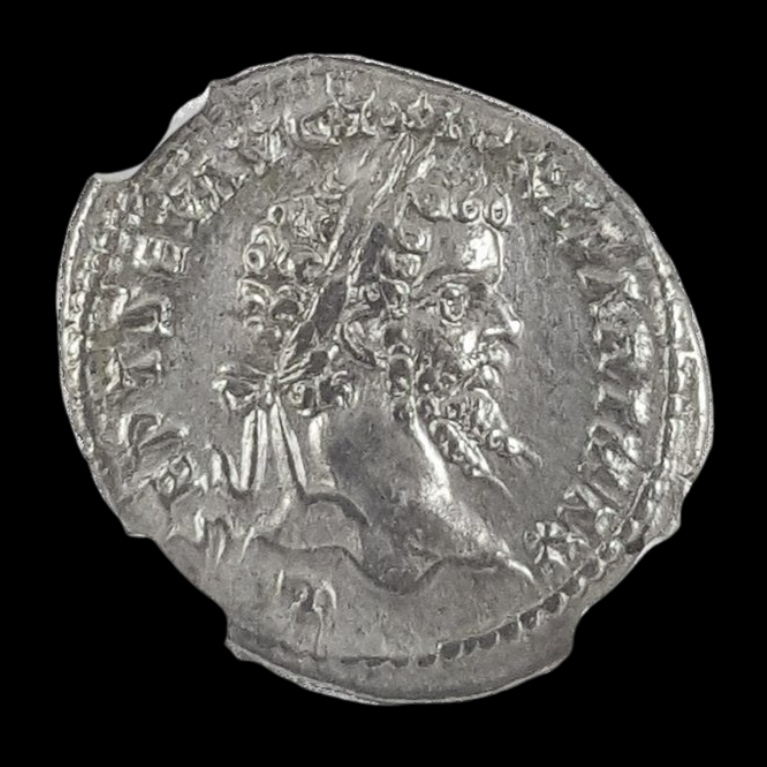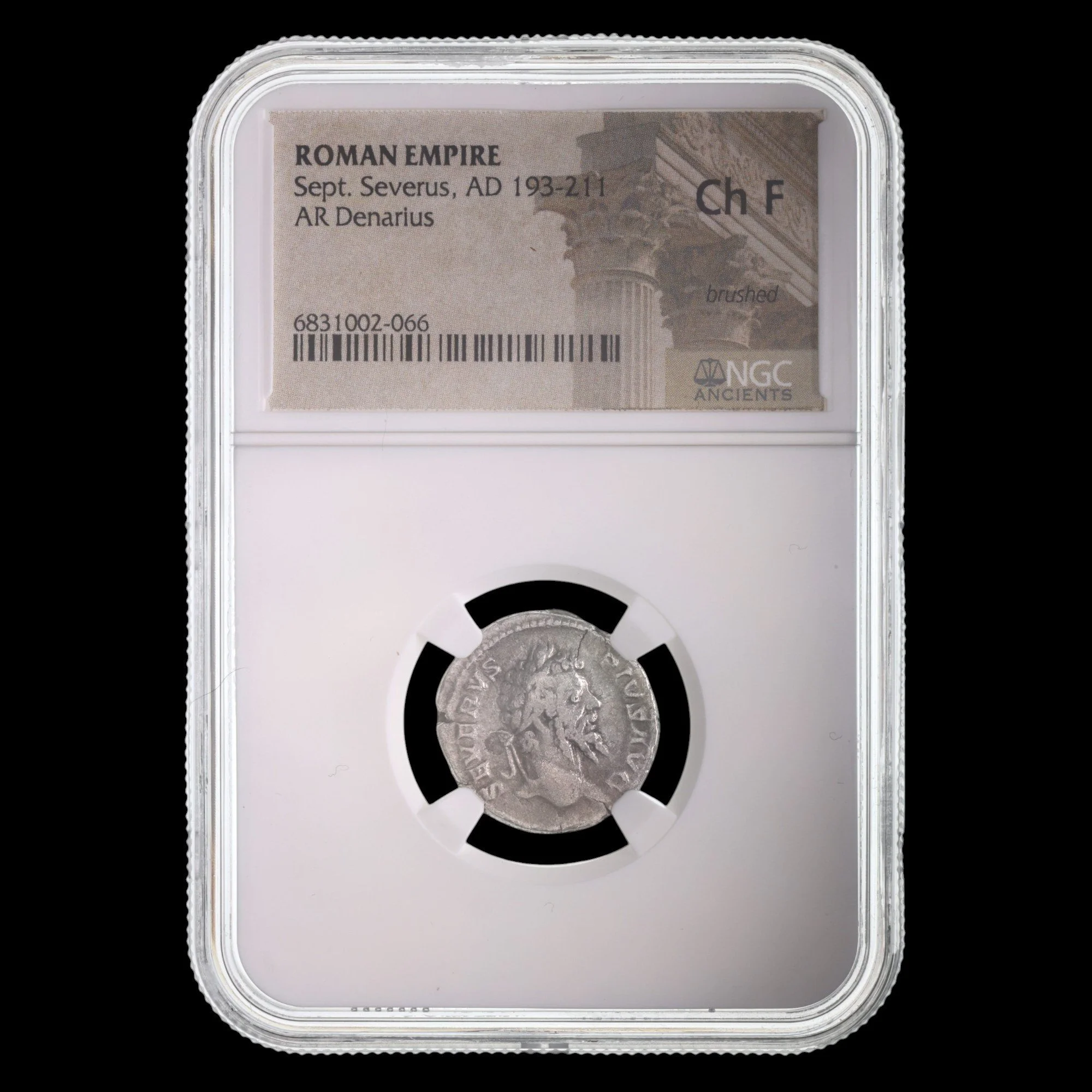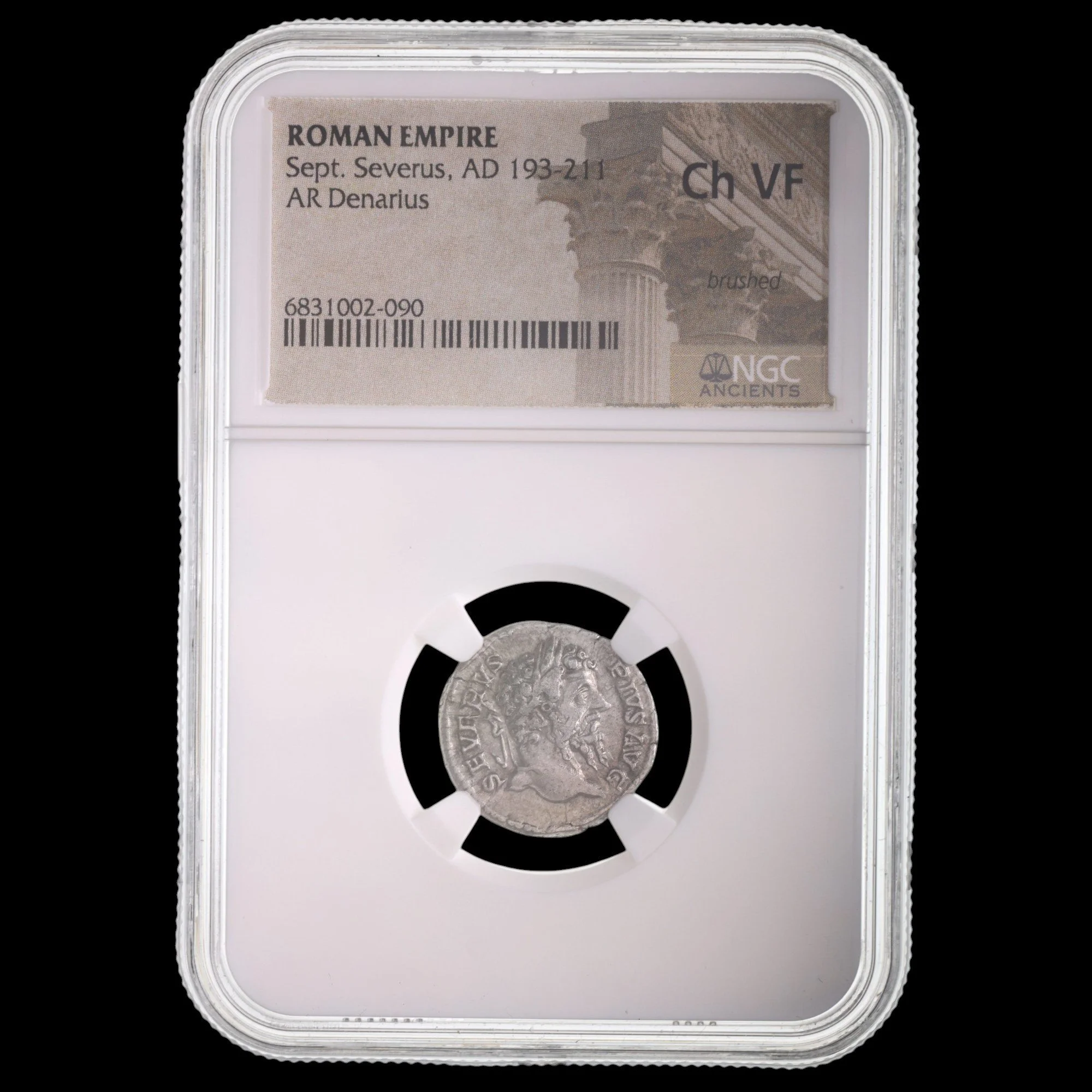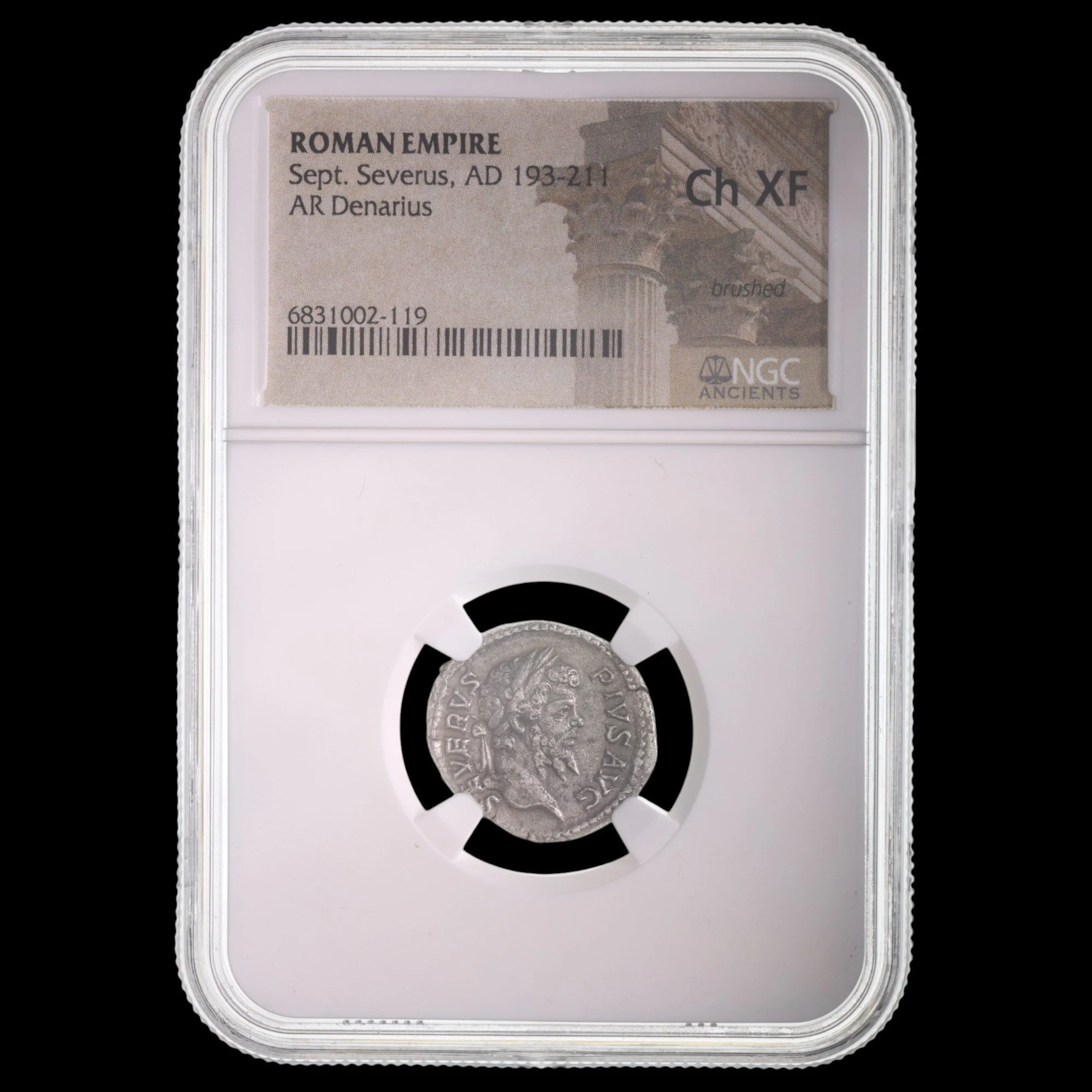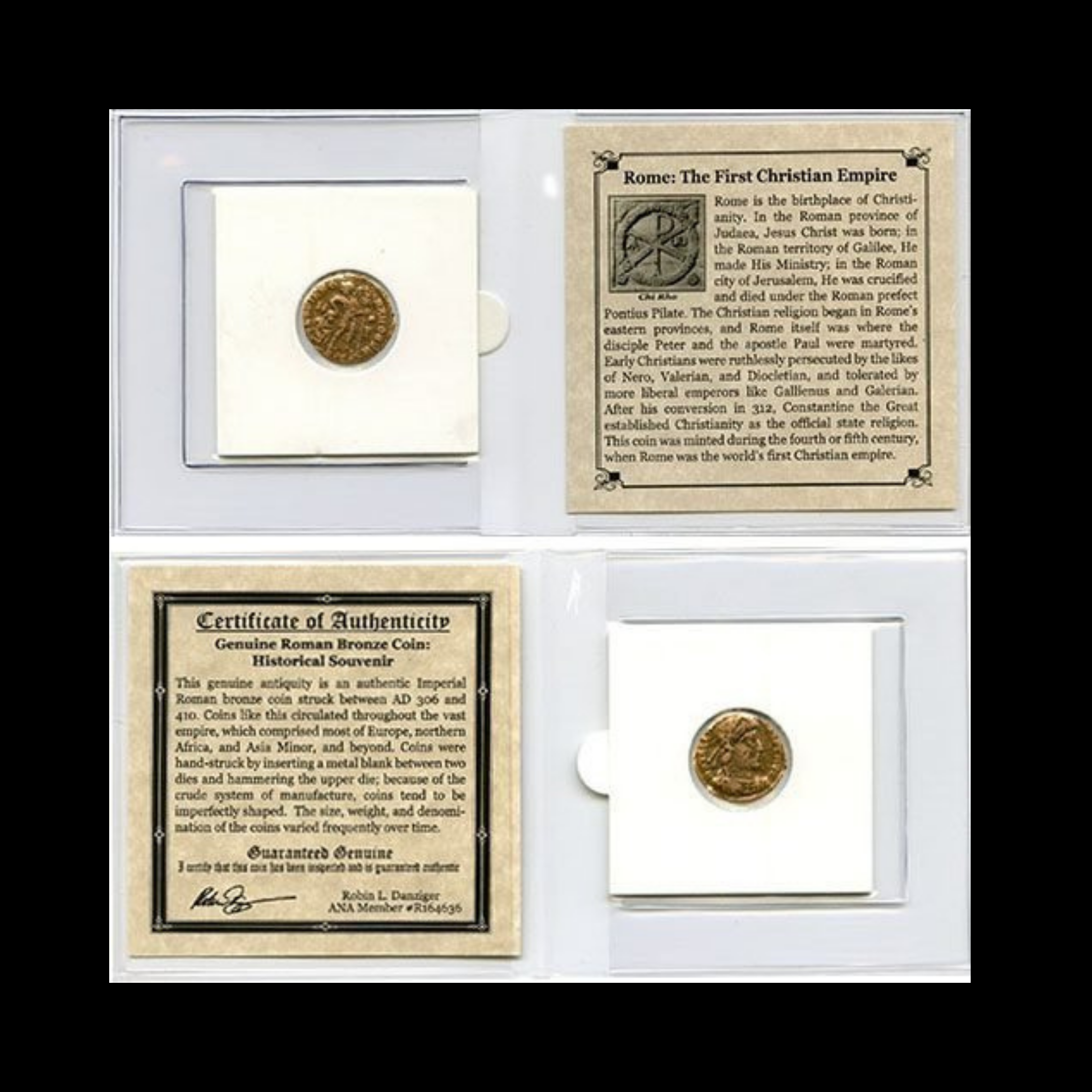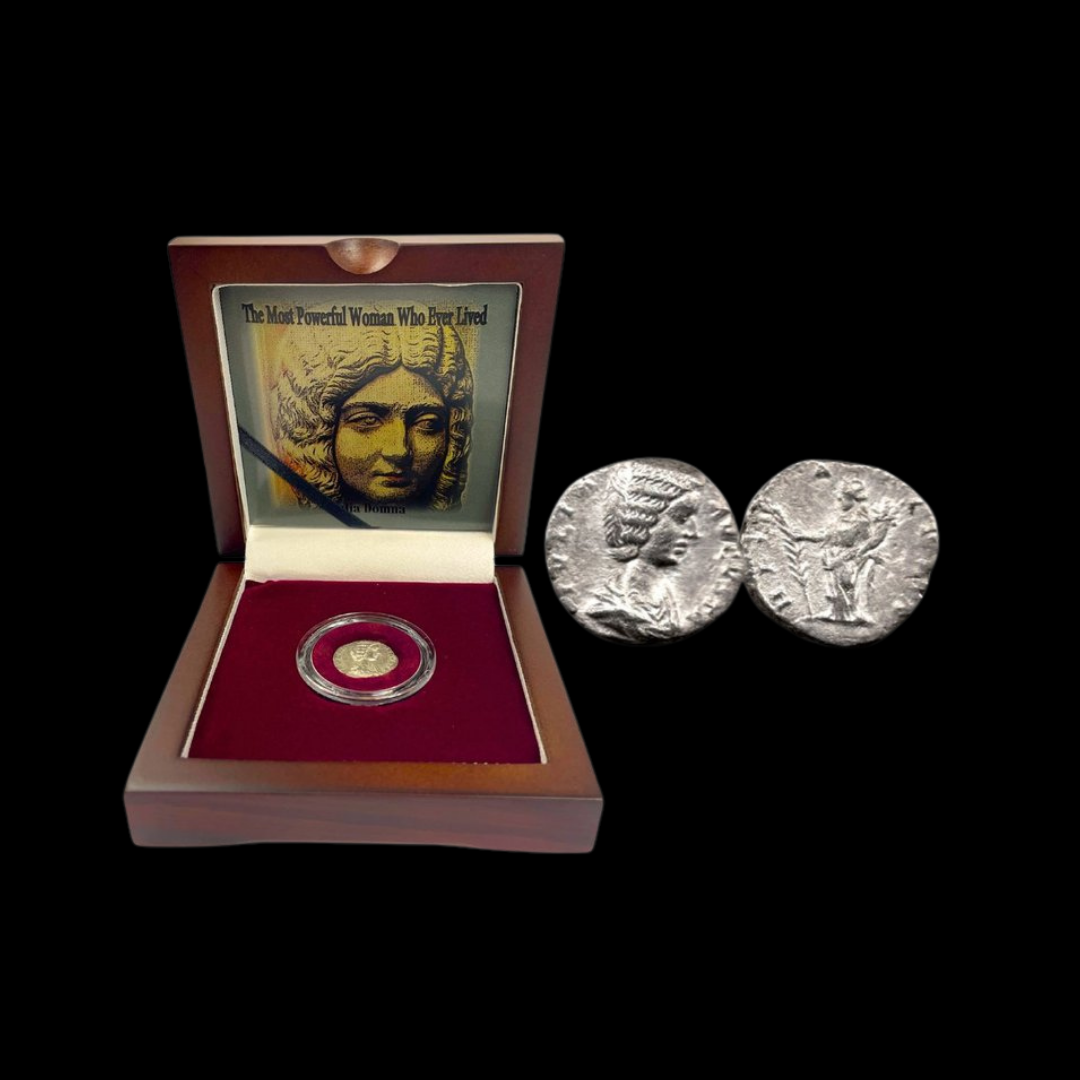 Image 1 of 4
Image 1 of 4

 Image 2 of 4
Image 2 of 4

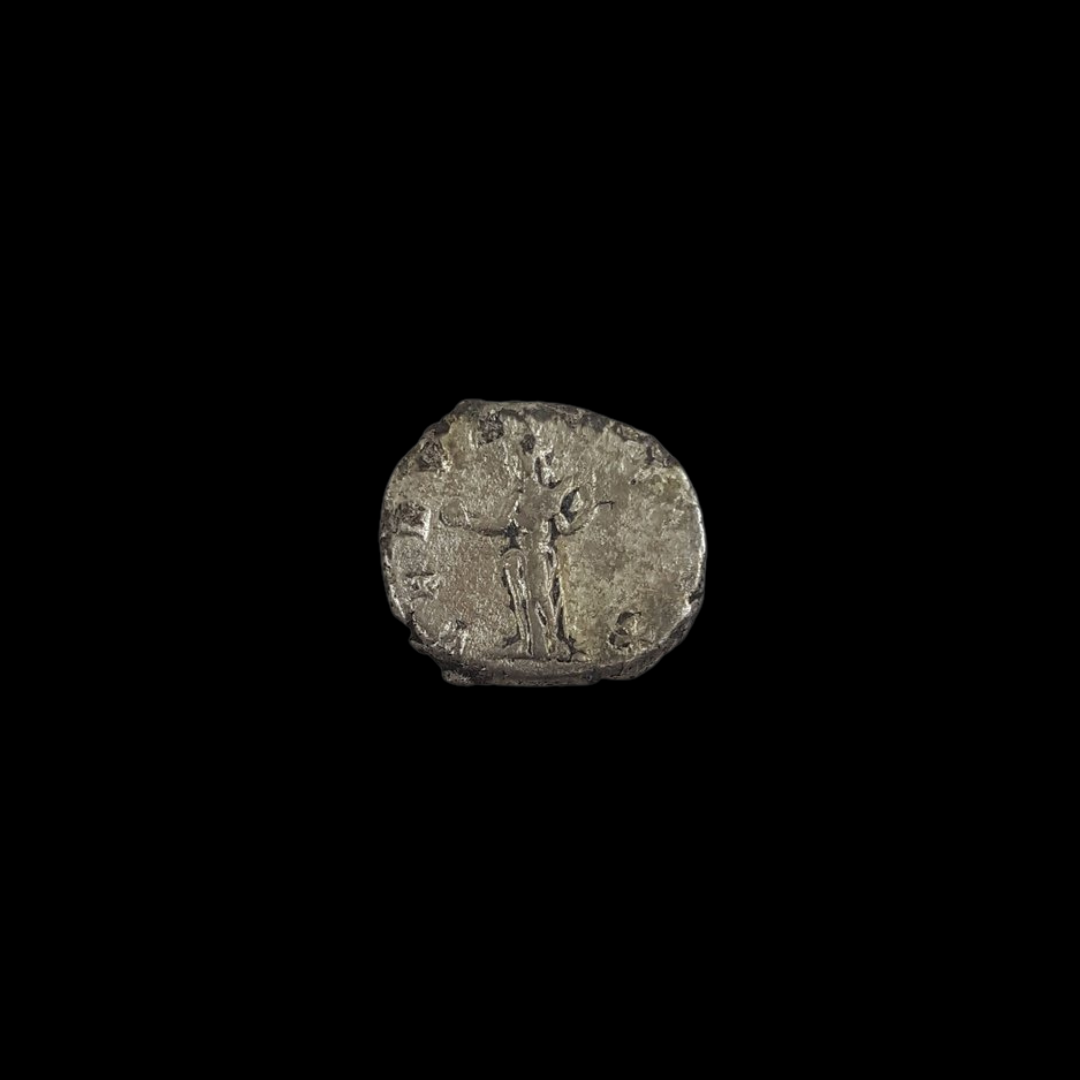 Image 3 of 4
Image 3 of 4

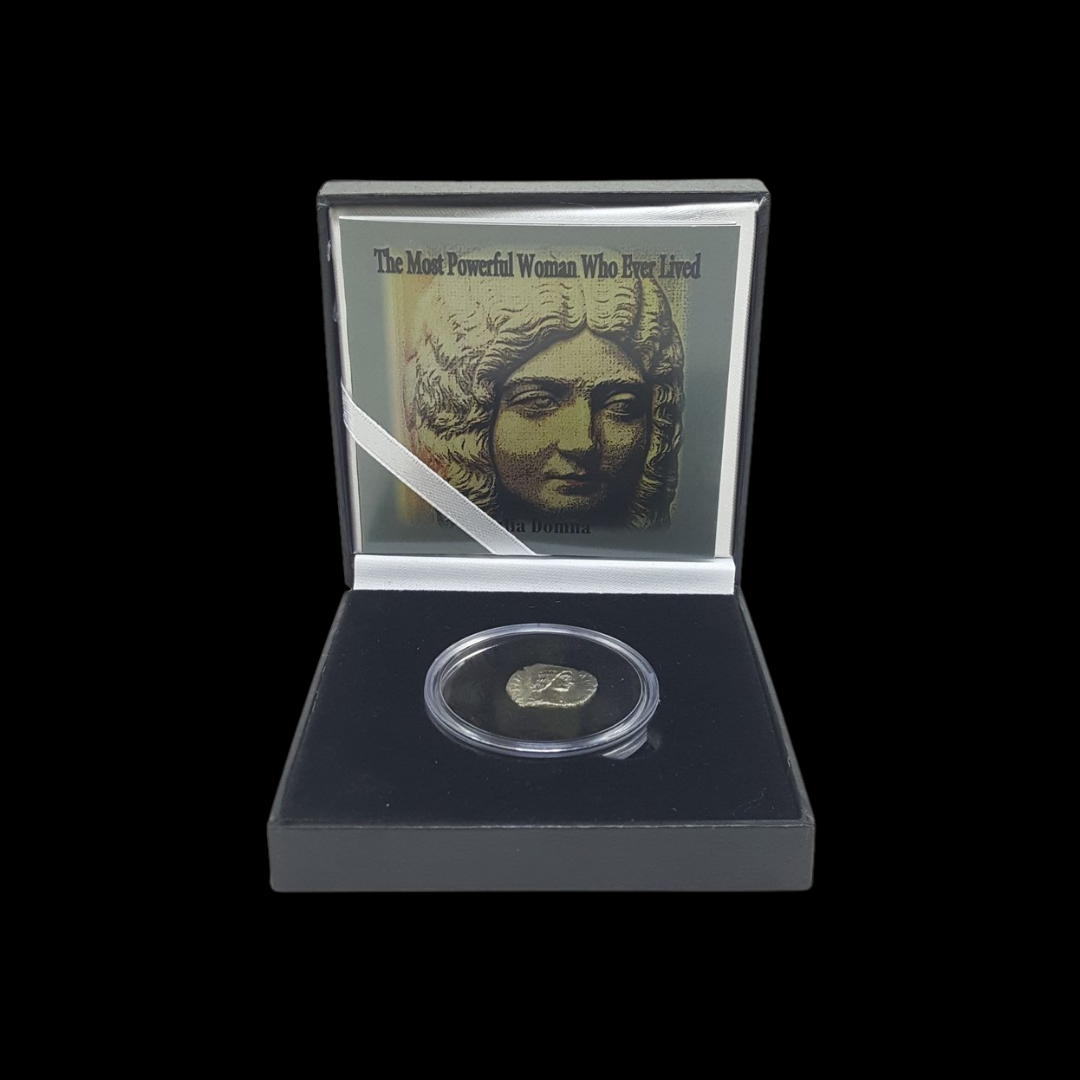 Image 4 of 4
Image 4 of 4





The Most Powerful Woman Who Ever Lived – Julia Domna Silver Denarius (AD 193–217)
Julia Domna Silver Denarius – Most Powerful Woman (NGC Certified) — Lady of the Camp
Authentic NGC-certified silver denarius of Julia Domna (193–217 AD) — Syrian empress shapes 42-year Severan dynasty, advises armies + Caracalla, starves defiantly after son's murder.
Empress Power Design
• Obverse: Helmet-style wavy hair portrait + "IVLIA DOMNA AVG"
• Reverse: Venus/Ceres/Pietas / military piety symbols
• Titles: Mater Castrorum (Mother of the Camp)
Technical Specifications
• Material: AR silver denarius (pre-debasement quality)
• Denomination: High-value empire currency
• Certification: NGC slabbed black presentation box
• Date: AD 193–217
• Mints: Rome + campaign facilities
Dynasty Shaper Essential
• Accompanies Septimius Severus on all campaigns
• Survives Caracalla's murder of brother Geta
• Advisors call her empire's true ruler
• Starves 217 AD rather than serve Macrinus
Collector Masterpiece
Rome's most powerful empress in silver. Julia Domna's military genius + dynastic control eternal.
Note: Coins shown are representative examples of grade/type, not actual specimens. For NGC grading standards, see NGC Grading page.
Julia Domna Silver Denarius – Most Powerful Woman (NGC Certified) — Lady of the Camp
Authentic NGC-certified silver denarius of Julia Domna (193–217 AD) — Syrian empress shapes 42-year Severan dynasty, advises armies + Caracalla, starves defiantly after son's murder.
Empress Power Design
• Obverse: Helmet-style wavy hair portrait + "IVLIA DOMNA AVG"
• Reverse: Venus/Ceres/Pietas / military piety symbols
• Titles: Mater Castrorum (Mother of the Camp)
Technical Specifications
• Material: AR silver denarius (pre-debasement quality)
• Denomination: High-value empire currency
• Certification: NGC slabbed black presentation box
• Date: AD 193–217
• Mints: Rome + campaign facilities
Dynasty Shaper Essential
• Accompanies Septimius Severus on all campaigns
• Survives Caracalla's murder of brother Geta
• Advisors call her empire's true ruler
• Starves 217 AD rather than serve Macrinus
Collector Masterpiece
Rome's most powerful empress in silver. Julia Domna's military genius + dynastic control eternal.
Note: Coins shown are representative examples of grade/type, not actual specimens. For NGC grading standards, see NGC Grading page.















